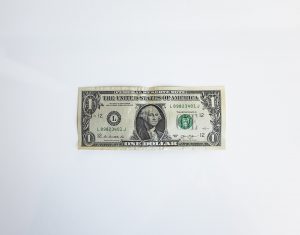
The debt collector
Many creditors send your account to debt collectors if you leave them unpaid for months.
The debt collector’s job is to pursuing you for payment and sometimes making an offer to settle the debt.
A debt collector is assigned to a delinquent account until it is paid for.
Part of the practice is to list an account in the credit report indicating that there is an outstanding debt.
Having debt collection on your credit report hurts your credit score because it shows severe delinquency. The collection affects your credit as you get older.
But will remain on your credit report for seven years for future creditors and lenders to see and scrutinize.
Conflict if not your collection
If it’s not you’re debt, you don’t have to pay. Compete with debt collectors for errors. Report your collection account and ask them to remove it from your credit report.
Even if the debt belongs to you, that doesn’t mean collectors can legally collect from you. When contacted by a debt collector within the last 30 days, you can request that the debt be verified.
This process requires you to prove that the collector is in debt. If the collector is unable to verify the debtor or does not respond to the claim.
By law, the debt inquiry must be removed from the credit report immediately.
Review all credit reports.
If you’re concerned about collection accounts, found in a particular credit report.
Go and check for other reports where other exclusions are inaccurately reported.
Determine the legitimacy of your account.
Is the collection account legitimate – the over-due debt you actually owe(d)? If so, you’re going to have a hard time removing it from your credit report.
You can also dispute inaccuracies with debt collectors and creditors.
Such as credit card issuers, but these disputes usually have to be done by phone or mail.
In this case, consider sending 609 dispute letters through a certified email.
If your account is actually wrong and needs to be removed. You may be able to delete it through the dispute process.
Select an action plan.
There are several ways to handle collection accounts in credit reports.
If the collection account is inaccurate, dispute it with each credit office reporting it. The Consumer Credit Office allows you to file disputes online for convenience.
If your account is legitimate but paid for, contact a collections agent requesting the removal of goodwill.
This literally includes asking you to delete your account because you paid for it. It probably won’t work, but it’s worth a shot.
If you haven’t made any other credit blunders in the past, the change is more feasible.
Just wait! Collections can typically remain in the report for only about seven years after the account is delinquent. And even if they are unpaid, the impact on the score disappears over time.
Understand the limitations.
It is important to remember that while collection accounts can cause significant credit damage, this impact is temporary.
Otherwise, manage your credit wisely and you should be able to recover in time.
Conflict seven years later
According to the Fair Credit Reporting Act (FCRA). Expired accounts can remain on credit reports for only seven years from the first day of arrears.
Sneaky collectors often try to re-age their debts, and it looks like the account has been delinquent later than that. This re-aging will keep credit report debt longer.
Disputes when collectors sell
Collection accounts often change hands, and debt collectors are allocated to other debt collectors for sale.
Most likely, the collection agency listed on the credit report is not the agency currently collecting the debt.
In this case, you can object with the credit office to delete the old collection. If the debt collector does not respond to the dispute.
The delinquent account has not been verified and the account must be deleted.
Ask for the removal
Asking for removal may be a long shot with a debt collection agency. But a goodwill removal requests are another option for removing debt collection from credit reports.
The goodwill work with accounts you’ve already paid for. In the letter, you essentially ask the debt collector to show some mercy.
You fell at a difficult time after a major life change. Hoping they’ll remove the collection from your credit report.
When everything else fails
If you can’t remove the collection account from your credit report, pay for it. Paid collections are better than unpaid collections and show future lenders who have taken care of your financial responsibilities.
- After you pay for the collection, wait for the credit report to expire.
- Collection accounts will or should be removed from the credit report.
- But certainly, consumers can request their own credit reports for free every 12 months from three major reporting agencies.
- Checking the credit report to verify that the excluded information, has been deleted.
- It is important to note, that information could still be kept in a file. And published under certain circumstances.
- Applying for more than a certain amount of paid work or taking out a credit line or life insurance policy that exceeds a certain amount.
- State law may provide additional protection, you should check with the state attorney general’s office for more information.




